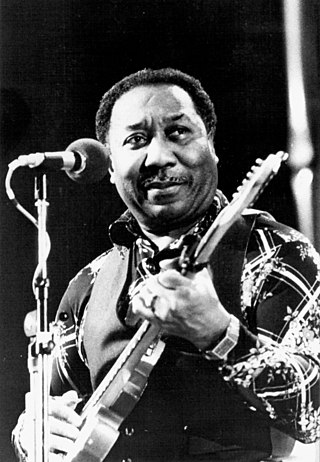
McKinley Morganfield, known professionally as Muddy Waters, was an American blues singer and musician who was an important figure in the post-World War II blues scene, and is often cited as the "father of modern Chicago blues". His style of playing has been described as "raining down Delta beatitude".

Manfred Mann were an English rock band, formed in London and active between 1962 and 1969. The group were named after their keyboardist Manfred Mann, who later led the successful 1970s group Manfred Mann's Earth Band. The band had two different lead vocalists, Paul Jones from 1962 to 1966 and Mike d'Abo from 1966 to 1969.

Little Games is the fourth American album by English rock band the Yardbirds. Recorded and released in 1967, it was their first album recorded after becoming a quartet with Jimmy Page as the sole guitarist and Chris Dreja switching to bass. It was also the only Yardbirds album produced by Mickie Most.
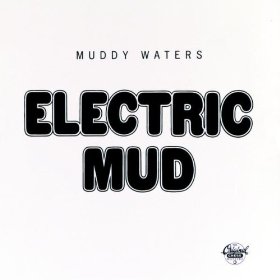
Electric Mud is the fifth studio album by Muddy Waters, with members of Rotary Connection playing as his backing band. Released in 1968, it presents Muddy Waters as a psychedelic musician. Producer Marshall Chess suggested that Muddy Waters record it in an attempt to appeal to a rock audience.
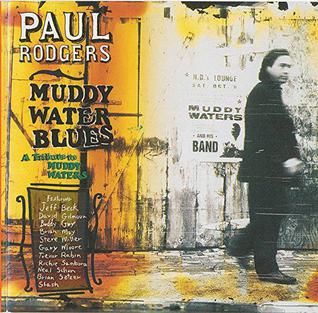
Muddy Water Blues: A Tribute to Muddy Waters is the second solo album by Paul Rodgers, consisting predominantly of covers of songs made famous by blues artist Muddy Waters. Although attributed solely to Rodgers, the album features many guest musicians including Jeff Beck, Jason Bonham, David Gilmour, Buddy Guy, Brian May, Steve Miller, Gary Moore, Trevor Rabin, Richie Sambora, Neal Schon, Brian Setzer and Slash. It was released in 1993.

"Do Wah Diddy Diddy" is a song written by Jeff Barry and Ellie Greenwich and originally recorded in 1963, as "Do-Wah-Diddy", by the American vocal group the Exciters. Cash Box described the Exciters' version as "a sparkling rocker that bubbles over with coin-catching enthusiasm" and said that the "great lead job is backed by a fabulous instrumental arrangement." It was made internationally famous by the British band Manfred Mann.
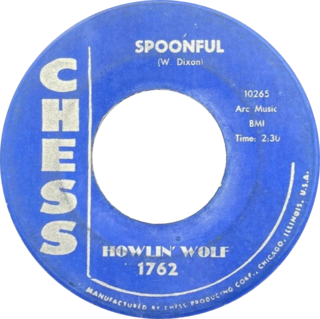
"Spoonful" is a blues song written by Willie Dixon and first recorded in 1960 by Howlin' Wolf. Called "a stark and haunting work", it is one of Dixon's best known and most interpreted songs. Etta James and Harvey Fuqua had a pop and R&B record chart hit with their duet cover of "Spoonful" in 1961, and it was popularized in the late 1960s by the British rock group Cream.
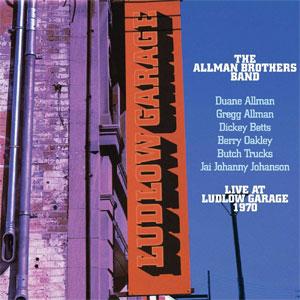
Live at Ludlow Garage: 1970 is an album by the Allman Brothers Band. It was recorded live at Ludlow Garage in Cincinnati on April 11, 1970. It was released by Polydor Records on April 20, 1990.
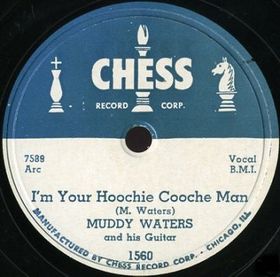
"Hoochie Coochie Man" is a blues standard written by Willie Dixon and first recorded by Muddy Waters in 1954. The song makes reference to hoodoo folk magic elements and makes novel use of a stop-time musical arrangement. It became one of Waters' most popular and identifiable songs and helped secure Dixon's role as Chess Records' chief songwriter.

Mighty Garvey! is the fifth and final studio album by Manfred Mann, released on 28 June 1968 by Fontana Records. It was the last recorded by the band after the change of direction and personnel of their 1966 album As Is. It continued a transition away from jazz and blues towards self-composed art-pop. Despite including two UK top 5 hit singles, the album did not chart and the band split up the year after. In the US and Canada, it was released as The Mighty Quinn by Mercury Records.

I Am the Blues is the sixth studio Chicago blues album released in 1970 by the well-known bluesman Willie Dixon. It is also the title of Dixon's autobiography, edited by Don Snowden.

Move Somethin' is the second studio album by the Miami-based hip hop group 2 Live Crew. It was released on August 17, 1988, via Luke Records and was produced by Luke Skyywalker and Mr. Mixx. It was certified Gold by Recording Industry Association of America. The album improved on the charts from the previous album, making in to number 68 on the Billboard 200 and number 20 on the Top R&B/Hip Hop Albums chart. It contains the singles "Move Somethin'" and "Do Wah Diddy Diddy".
"5-4-3-2-1" is a 1964 song by British band Manfred Mann. It was written by Mann, Mike Hugg and Paul Jones, and peaked at #5 on the UK Singles Chart thanks to weekly television exposure from being the theme tune for the ITV pop music television programme Ready Steady Go!. This would be the last single released before bass player Dave Richmond left the band.
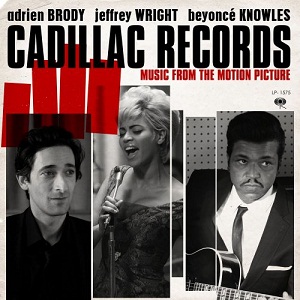
Cadillac Records: Music from the Motion Picture is a soundtrack album for the film Cadillac Records. It features covers of classic songs from Chess Records' singers as performed by the film's actors including Beyoncé, Eamonn Walker and Jeffrey Wright. It also features original songs from contemporary artists such as Beyoncé's sister, R&B singer Solange Knowles and rapper Nas. The soundtrack has been released in single and double-disc editions.

The Howlin' Wolf Album is the first studio album by Howlin' Wolf, released in 1969. It features members of Rotary Connection as his backing band. The album mixed blues with psychedelic rock arrangements of several of Wolf's classic songs. Howlin' Wolf strongly disliked the album, which is noted on the album's cover art. The album peaked at number 69 on Billboard magazine's "Black Albums" chart.
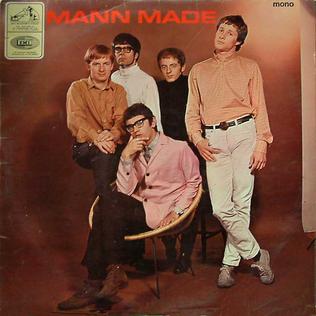
Mann Made is the second British and fourth American studio album by Manfred Mann, released in October 1965 on His Master's Voice in the United Kingdom, and November 1965 on Ascot Records in the United States. It was the group's final recording project with original members Mike Vickers and Paul Jones, as well as their last to be recorded at Abbey Road Studios, London, England, before switching to Fontana Records.

Groovin' with Manfred Mann is an EP by Manfred Mann, released in 1964. The EP is a 7-inch vinyl record and released in mono with the catalogue number His Master's Voice-EMI 7EG 8876.

Live at the Checkerboard Lounge, Chicago 1981 is a concert video and live album by American blues musician Muddy Waters and members of the English rock band the Rolling Stones. It was recorded on 22 November 1981 by David Hewitt on the Record Plant Black Truck, mixed by Bob Clearmountain, and released on 10 July 2012.
"Come Tomorrow" is a song written by American songwriters Bob Elgin, Dolores Phillips and Frank Augustus for rhythm and blues singer Marie Knight, who issued it as a single in October 1961 through Okeh Records, a release which received good reviews, though failed to chart. The best known version of the song was recorded by British pop band Manfred Mann, who took it to the top-ten in the United Kingdom in 1965.

The Five Faces of Manfred Mann is the debut British and second American studio album by Manfred Mann. It was first released in the United Kingdom on 11 September 1964 by His Master's Voice. In late October/early November, the album was released in Canada by Capitol Records. The Canadian track listing was almost the same as the UK version, except it included the hit "Do Wah Diddy Diddy" instead of "I've Got My Mojo Working". The record has been called "one of the great blues-based British invasion albums; it's a hot, rocking record that benefits from some virtuoso playing as well".


















